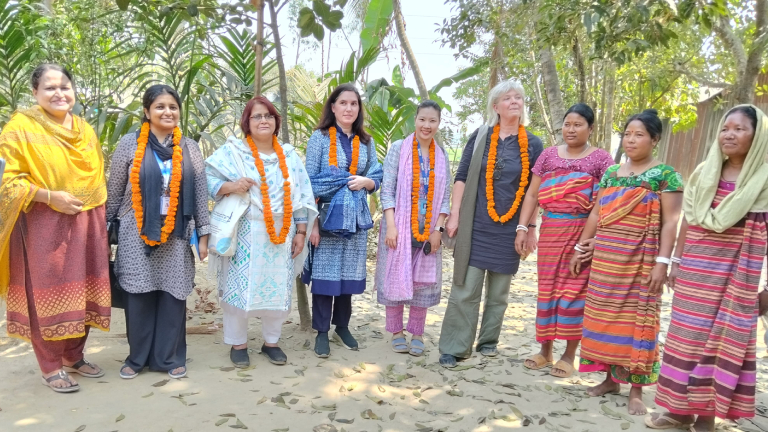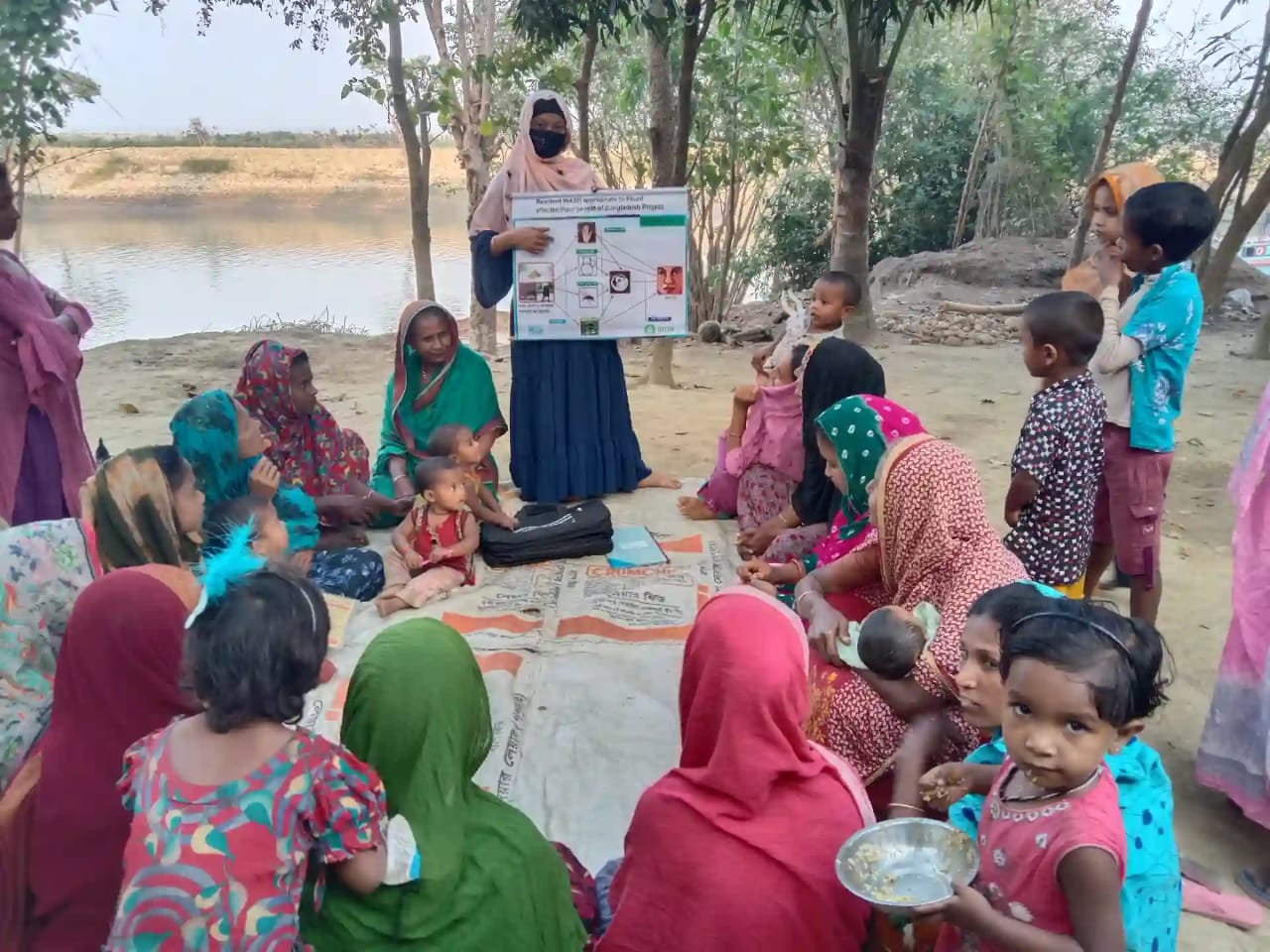In response to the devastating flash floods that severely impacted the Haor region of Sunamganj, the project titled “Addressing Protection and Sexual and Reproductive Health Needs of Flash Flood Affected Women, Adolescents, and Transgender People” was initiated by ERA with funding support from CWFD and UNFPA. The intervention focused on safeguarding the dignity, rights, and well-being of the most vulnerable populations—particularly women, adolescent girls, and transgender individuals—who often face increased risks during humanitarian crises.
The project was implemented in Dharampasha Upazila, one of the worst-affected areas, where many communities were displaced, health services were disrupted, and protection mechanisms were weakened. Recognizing the heightened vulnerability of women, adolescents, and transgender people during emergencies, ERA designed this initiative to ensure inclusive, gender-responsive, and rights-based support.
Key objectives of the project included:
- Ensuring access to sexual and reproductive health (SRH) services, including menstrual hygiene management, antenatal care, and safe delivery support.
- Strengthening protection mechanisms against gender-based violence (GBV), sexual exploitation, and abuse, through community sensitization and referral pathways.
- Raising awareness on SRH rights and psychosocial support, especially targeting adolescents and transgender individuals.
- Distributing dignity kits, SRH materials, and essential hygiene items to the affected population to preserve dignity and reduce health risks.
- Mobilizing and training community-based volunteers and health workers to provide accurate SRH information and support services during the emergency.
ERA worked closely with community leaders, health service providers, and local government authorities to ensure a coordinated response. The project emphasized inclusive participation, especially of marginalized groups, and worked to break stigma around SRHR and gender identity.
Through this project, ERA not only addressed immediate needs arising from the flash flood crisis but also laid the foundation for longer-term awareness and resilience within communities. The intervention contributed to protecting lives, upholding human dignity, and promoting gender equality in a humanitarian context.


